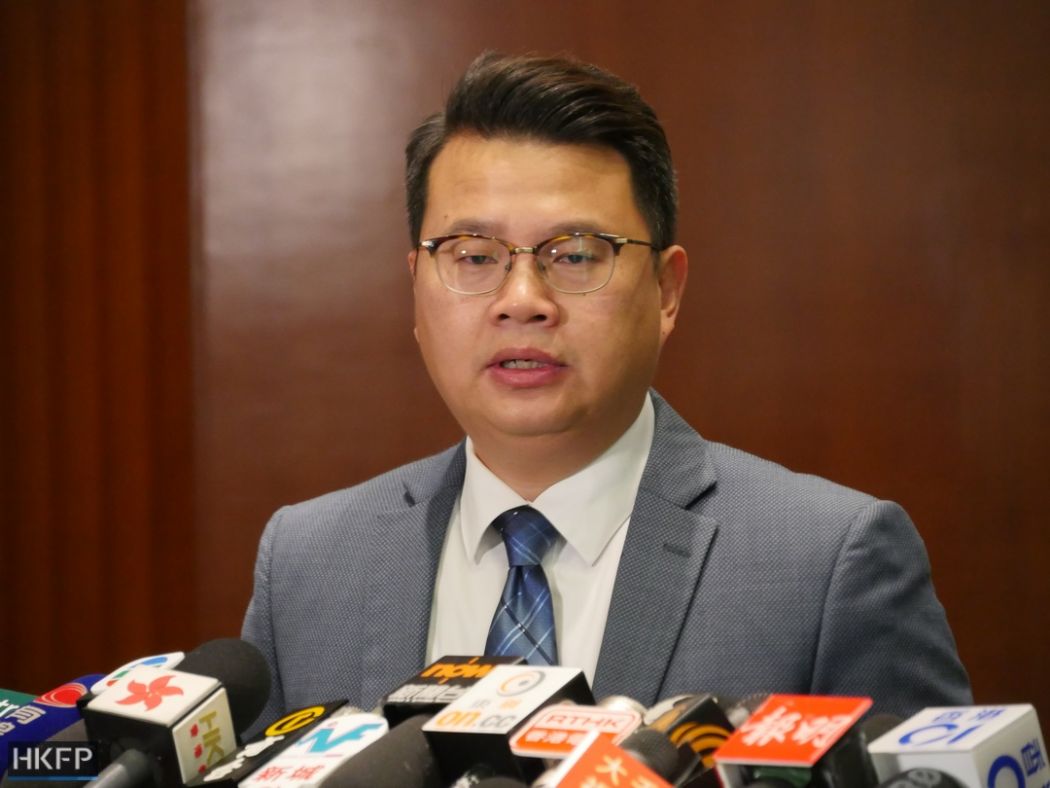Hong Kong’s pro-democracy lawmakers have put forward the first no-confidence vote against Chief Executive Carrie Lam, which took place amid escalating international concern about the city’s extradition bill.
Lam on Wednesday survived the first vote of its kind since she took office in 2017, thanks to the backing of the pro-Beijing majority in the legislature.

Democratic Party lawmaker Andrew Wan said he moved the motion because Lam “blatantly lied” about the extradition bill and misled the public and the international community. Lam had claimed that colonial officials did not deliberately exclude China from extradition laws ahead of the 1997 Handover.

Wan also called on Lam to resign, citing a recent poll that showed her popularity reaching a new low.
Earlier this month, the legislature’s president Andrew Leung ejected pro-democracy lawmaker Claudia Mo from the chamber after she called Lam a “liar.” Leung later said that it was against the rules to make accusations of “lying” in the chamber.
‘Unnecessary political gesture’
While the embattled chief executive did not appear at the legislature on Wednesday, Chief Secretary Matthew Cheung defended her record to lawmakers. “[The motion] is neither reasonable nor fair. It dismisses the hard work done by the administration, and is an unnecessary political gesture.”
Cheung added that the extradition bill had no political motive or hidden agenda, and that the government has made progress on livelihood issues during Lam’s time in office.
The extradition bill, if passed, would allow Hong Kong to transfer fugitives to jurisdictions with which it had no prior agreement. Democrats have voiced fears that Hong Kong residents will be extradited to the mainland – a concern echoed by businesses, lawyers, journalists and foreign politicians.

On Thursday, 15 parliamentarians from six countries joined the growing ranks of the bill’s critics, and called on Lam to shelve it. In a letter to the chief executive, the parliamentarians said Hong Kong’s “success and prosperity is a direct result of its robust rule of law and guaranteed freedoms.”
“The existing extradition legislation helps to safeguard the rule of law by ensuring that there is a clear firewall between the two diverging legal systems of the Hong Kong Special Administrative Region and the People’s Republic of China,” the letter read.
“Documents from the United Kingdom National Archives show that handover negotiators from both sides recognised the need for this firewall, and that it was designed to help protect Hong Kong’s judiciary.”

The signatories – who described themselves as “friends of Hong Kong” – included Co-leader of the German Green Party Katrin Göring-Eckardt, Lord Alton of Liverpool, Chair of the ASEAN Parliamentarians for Human Rights Charles Santiago, Deputy Shadow Foreign Minister of Canada Garnett Genuis, US Senator Tom Cotton, as well as other parliamentarians from the UK, US and the European Union.
Legal sector protest planned
Hong Kong’s legal sector will hold a silent march next Thursday calling on Lam to withdraw the extradition bill, the fifth protest of its kind since the 1997 handover.
This came after a Reuters article quoted judges as being “deeply disturbed” by the bill. One said that the amendment ignored “the importance of trust,” and said that many of his colleagues saw the law as “unworkable.”

Both Chief Secretary Matthew Cheung and Chief Justice Geoffrey Ma said that judges should refrain from commenting on politics and controversial matters, which could wound up before the courts.

Executive Councillor Ronny Tong criticised the judges – who were not named in the article – for “seriously breaching the code of conduct that required judges to appear neutral.” Tong also doubted if the judges correctly understood their responsibilities under an extradition request.
Lawmaker Dennis Kwok, who represents the legal functional constituency, said that the Hong Kong government was “putting the courts on the spot” by saying that they could be the solution to anxieties about the bill. In reality, judges would have no power to ensure a person receives a fair trial after that person was extradited to the mainland, he said.
The Hong Kong Free Press #PressForFreedom 2019 Funding Drive seeks to raise HK$1.2m to support our non-profit newsroom and dedicated team of multi-media, multi-lingual reporters. HKFP is backed by readers, run by journalists and is immune to political and commercial pressure. This year’s critical fundraiser will provide us with the essential funds to continue our work into next year.

